The Proverbs of Hell 31/39: Contorno
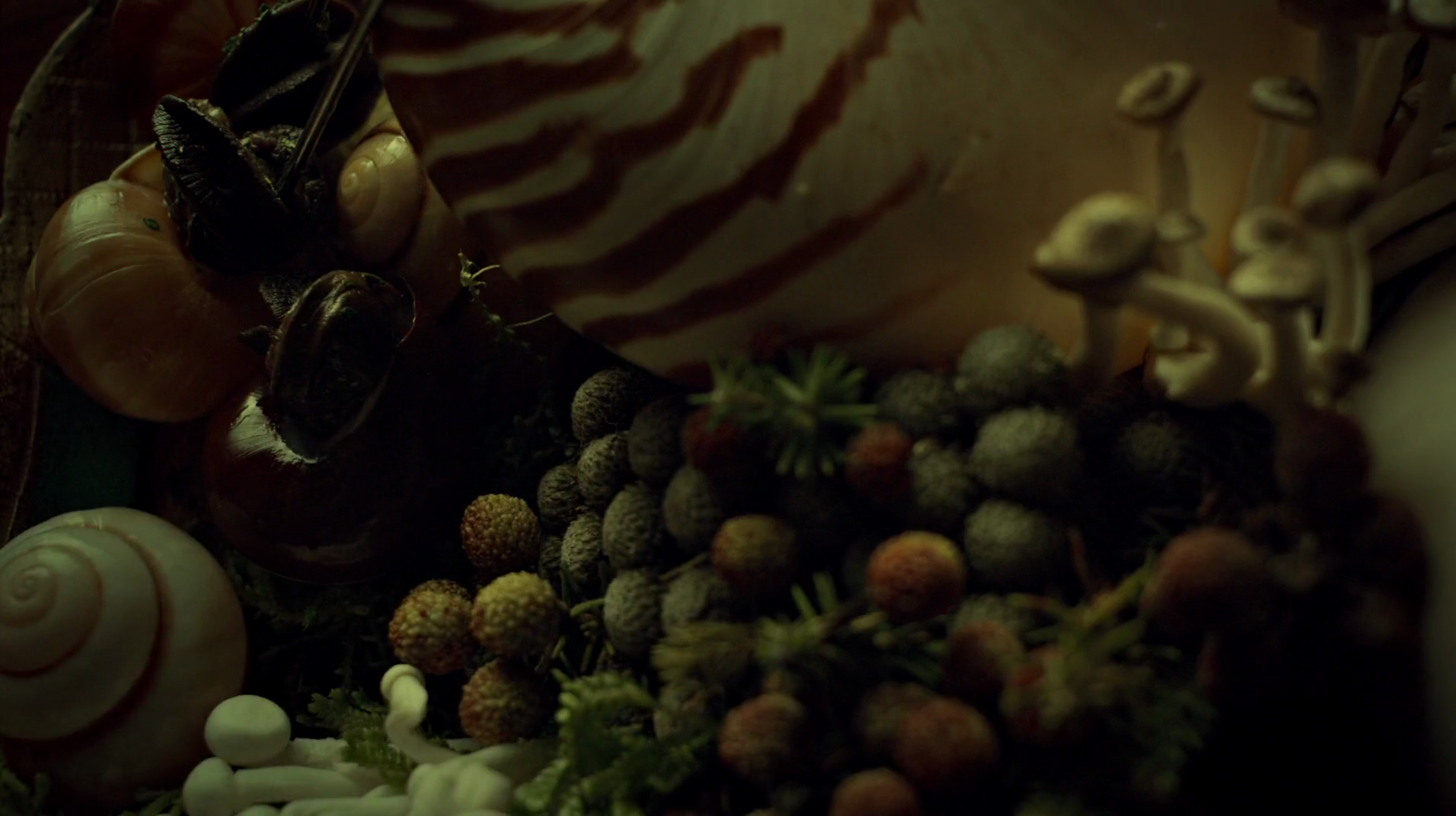 CONTORNO: A side dish, typically served with the secondo. This episode is a last chance to do small stuff before the major fireworks of the first arc of the season go off, but more to the point, as we will see, is in a meaningful sense focused on a side character.
CONTORNO: A side dish, typically served with the secondo. This episode is a last chance to do small stuff before the major fireworks of the first arc of the season go off, but more to the point, as we will see, is in a meaningful sense focused on a side character.
CHIYOH: On still evenings, when the air was damp after a rain, we played a game. Hannibal would burn all kinds of barks and incense for me to identify by scent alone. He was charming the way a cub is charming, a small cub that grows up to be like one of the big cats.
WILL GRAHAM: One you can’t play with later.
The game is more or less a direct quote from Hannibal Rising, and the nominal origin of Hannibal’s supernatural sense of smell. Although it is notable that the game is played with burnt objects, so that what is identified is not the smell of the thing, but the smell of its destruction. In her analogy for his charm, meanwhile, we have something that’s almost diametrically opposite from Will’s “pathetic wretch that failed to die” assessment, suggesting an early and seemingly innate grandeur to Hannibal. It is difficult, as we get into the depths of the show’s third season, to argue that Chiyoh does not have the right of it.
WILL GRAHAM: He comes in the guise of a mentor, but it’s distress that excites him.
This does not in fact describe Hannibal’s initial approach to Will, in which he was largely the manufacturer of the distress. Indeed, Will appears to have Hannibal wrong here. Hannibal certainly does do this on occasion, most obviously with Abigail, but Will is wrong to treat Hannibal’s tendency towards mentorship as insincere. As Chiyoh’s incense story shows, he really does enjoy the role of teacher, which is unsurprising given that the role leads directly towards something that clearly excites Hannibal more than distress: transformation.
CHIYOH: How do you know Hannibal’s in Florence?
WILL GRAHAM: Botticelli.
It’s interesting that Will’s answer is not, in fact, the double murder at the university, that being the thing that Bedelia assumed would bring attention to Hannibal. (Indeed, so far as I can tell nobody ever really makes anything of Anthony Dimmond’s murder at all – later in this episode, in fact, Pazzi calls Sogliato the second person to disappear.)
BEDELIA DU MAURIER: Almost anything can be trained to resist its instinct. A shepherd dog does not savage the sheep.
HANNIBAL: But it wants to.
I am not an expert on dog psychology, and far too lazy to commit to depth in researching this, but this certainly seems as though Hannibal is projecting, if only because of the research suggesting that dogs’ default behavior is in fact that of a profoundly lazy scavenger. (That and the people I’ve talked to who have pet collies that have never seen sheep, and who instead attempt to herd their families into a single room.) Nevertheless, this is a fantastic exchange, mostly because the discussion of animal psychology paints a vivid image for the real subject, human psychology, and the suggestion that human law and civilization is a thin veneer constantly threatened by an underlying savagery.
BEDELIA DU MAURIER: Morality can be summed up in one rule: “Do unto others as you would have them do unto you.”
HANNIBAL: Empathy and reciprocity.
BEDELIA DU MAURIER: Reciprocity. If we keep track of incoming and outgoing intentions, Will Graham is en route to kill you while you lie in wait to kill him. Now that’s reciprocity.
Bedelia offers her second most concise demonstration of the difference between kindness and empathy. But Hannibal’s account of morality leaves an implicit question: what are the components of aesthetics, and what do they have to do with empathy? The general question is outside the scope of this annotation, but recall that Hannibal’s aesthetic is Will Graham.
“Contorno” is unique in the series in that it is first and foremost a Jack-centric episode. This means that we get beats like Jack’s burial of Bella by pouring her ashes into the Arno and his removal and discarding of his wedding ring – a small and personal moment sufficiently removed from the main plot that it would be easy to do the story without it. Even this episode, which builds to a big Jack scene, could have been done without it. But including it is a strong and mature decision that improves the episode immeasurably, using the enforced separation of Will and Hannibal to give other characters room to breathe.
INSPECTOR PAZZI: I look at her and I think about all the things I want to give her…
JACK CRAWFORD: How you want to appear in her eyes.
What Jack is talking about is called a metaperception in psychology, or, alternatively, the “looking-glass self,” a theory that suggests our sense of self is determined by our perception of how we are seen. Stripped of jargon, however, it becomes a tacit echo of Hannibal and Bedelia’s “reciprocity and empathy” conversation.
ALANA BLOOM: It’s a table setting from the home of Dr. Hannibal Lecter. The silverware is 19th-century Dutch from Christofle. The plate is Gien French china from Tiffany. The table linen is damask cotton, also from Christofle.
MASON VERGER: You’ve got to hand it to the man. He has the most marvelous taste.
In which Mason tries to crowd in on Hannibal’s “make jokes about being a cannibal” schtick. (That said, the similarity between this scene and the “that’s how you’ll find him” scene last episode makes this an oddly and irksomely redundant beat.
ALANA BLOOM: Hannibal very much likes to shop. I’ve discovered a pattern of purchases. An echo of the life Hannibal lived in Baltimore.
MASON VERGER: He likes music, he likes wine, he likes food and he likes you. How did you taste? Sweet, I bet. I’m sure you got a taste of him, too. Spitters are quitters, and you don’t strike me as a quitter, Dr. Bloom.
ALANA BLOOM: The first step in the development of taste is to be willing to credit your own opinion. But in areas of food and wine, I have to follow Hannibal’s precedents.
“The first step in the development of taste” echoes the “how do we learn to covet” bit from Silence of the Lambs, but the real big thing in this exchange is the demonstration of how Alana handles the base sexual sadism of her new employer, responding to one of Mason’s most “ugh” lines by ignoring it without being even slightly thrown off her stride.
ALANA BLOOM: A receipt from a Florentine fine grocer, Vera dal 1926, for two bottles of Bâtard-Montrachet and some tartuffi bianchi. And another. And another. And another. Once a week, for the last three months, a blonde woman makes the exact same purchase. And she always pays cash. She’s shopping for Hannibal.
A point that is much clearer in the scripts for Season Three, but that was cut from the transmitted episodes, is that Bedelia is leaving a deliberate trail leading towards Hannibal. This was to climax in “Contorno,” which as scripted had a scene immediately after this one in which Jack and Pazzi nearly catch her at the train station, where she has made a regular ritual of getting herself caught on the CCTV.
WILL GRAHAM: In the gnawing sameness of your days, did you look at the shape of things? At what you were becoming?
CHIYOH: I wasn’t becoming anything. I was standing still. Exactly where he left me standing. Like taxidermy.
WILL GRAHAM: Hollowed out and filled with something else.
CHIYOH: Not something else. I’m not as malleable as you are.
It is somewhat unfortunate that essentially the entirety of Chiyoh’s characterization comes from what we might think of as Hannibalistic Dialogues with Will, who remains curiously off his game. The result is that her characterization tends to consist of vague statements made in the negative. For instance, she is less malleable than Will Graham. Very well; but what is her underlying form? This exchange comes perilously close to suggesting she outright doesn’t have one, and that she is hollow.
HANNIBAL: I prefer the sound and feel of the harpsichord. More alive because it is not possible to control the volume of the quill-plucked strings, the music arrives like experience, sudden and entire. The piano has the quality of a memory.
One of the more striking and revealing aesthetic declarations from Hannibal. What is key, of course, is not the music criticism itself, which is a well-fashioned but ultimately simple bit of contrarianism akin to, say, placing Hell Bent ten places above Heaven Sent, but rather the principle that is revealed – Hannibal’s desire for art to be “sudden and entire,” crashing in ex nihilo with complete wholeness, as opposed to being haunted and partial. In other words, he prefers the weird to the hauntological, in marked contrast to what he actually is.
CHIYOH: I like the night. It’s more than a period of time; it’s another place. It’s different from where we are during the day.
Despite its periodic use of daytime shots, Hannibal takes place entirely at night.
The basic crypticness of Chiyoh makes her major actions difficult to unwind, at least until her final one, which fixes her previous ones into a straightforward narrative of wanting Hannibal to share her punishment instead of getting the simplistic death that Will intends for him. But even with this retrospective clarity questions remain. How, for instance does she know Hannibal is in Florence given that she apparently spends her life in monkish solitude in Lithuania? And more pressingly, what’s with snogging Will?
The stag has been absent from Will’s dreamscape since its death in Mizumono. The point that Will is off his game in this episode is not an explicit part of the narrative, but its in its own way confirmed by its reappearance here, and the attendant suggestion that he is back on the trail in a way he was not before.
INSPECTOR PAZZI: It was supposedly worn by Francesco de’ Pazzi when he met his end. My family’s guilt cast in iron.
HANNIBAL: A scold’s bridle. May I?
INSPECTOR PAZZI: Of course.
HANNIBAL: A wonderful heirloom. I’m so glad you stopped by, Commendator Pazzi, as I found another family heirloom for you. Beneath the figure is written his name. Can you make it out?
INSPECTOR PAZZI: It says, “Pazzi.”
HANNIBAL: This is your ancestor, Francesco, hanging outside the Palazzo. This particular illustration is bowels out. I’ve seen others bowels in. By all accounts, Francesco was led astray by thirty pieces of silver from the hand of the Papal banker.
INSPECTOR PAZZI: Yes, the archbishop, in all his holy vestments, hanged beside Francesco and provided no spiritual comfort.
HANNIBAL: It’s hard to see, but here’s where the archbishop bit him. Eyes wild as he choked, the archbishop locked his teeth in Pazzi’s flesh. On a related subject, I must confess, I’ve been giving very serious thought to doing the same.
The death referred to is part of the Pazzi conspiracy, a Renaissance-era plot against the reigning Medicis on the part of Pazzi’s ancestors. The reference is ordained by the books, and like the Ancient of Days appears to be more rooted in Harris’s inclination towards a sort of European classicism than on content per se, although it does create a sort of inherited justification for Pazzi’s social ostracization, as the Pazzis were exiled for the crime.
That Hannibal would prefer a bowels-out illustration (and ultimately a bowels-out death for Pazzi) is of course inevitable, but there is a marked irony in the fact that he never actually does get to sink his teeth into Pazzi.
HANNIBAL: Hello, Jack. Did you get my note? I am truly sorry about Bella. For her, night and day would be very much the same in the end. When she could no longer stir or speak, did you speak for her? I imagine you were capable of giving any medication Bella may have needed in the night. Did you practice injections on an orange? What medication did you give her in the end, Jack? Was it too much? Or just enough?
Hannibal miscalculates here, overestimating the degree to which he can rely on the sadism of his genuine affection for the Crawfords. Jack, having had his quiet early-episode moment, is beyond this.
The episode’s climax – a reverse of the cold open/cliffhanger of “Mizumono,” is pitched as a triumphant and even comedic triumph for Jack, who simply and unrelentingly pounds on Hannibal over a stretch of operatic background music (a change from the script, which has Jack mask the sound of his approach by taking his shoes off; this detail is maintained, but no real effort is made to emphasize it). This is a significant beat for Jack, who does not really have anything quite like it elsewhere in the series, and indeed is not otherwise a character who would seem likely to get a beat like this. (Imagine Alana getting one.) Obviously Jack cannot be the one to take Hannibal down, and indeed will get his before long, but the moment is remarkable all the same.

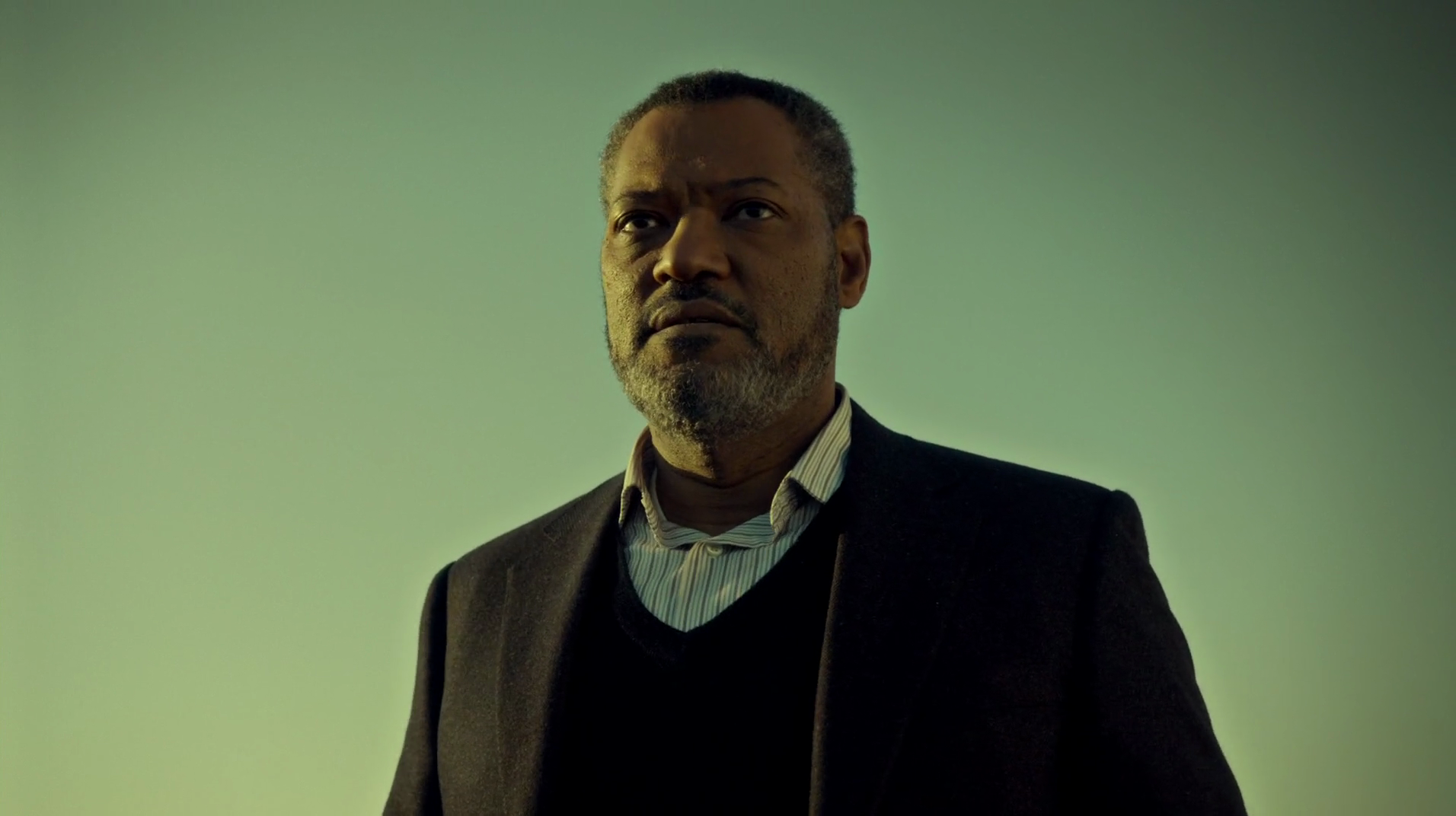
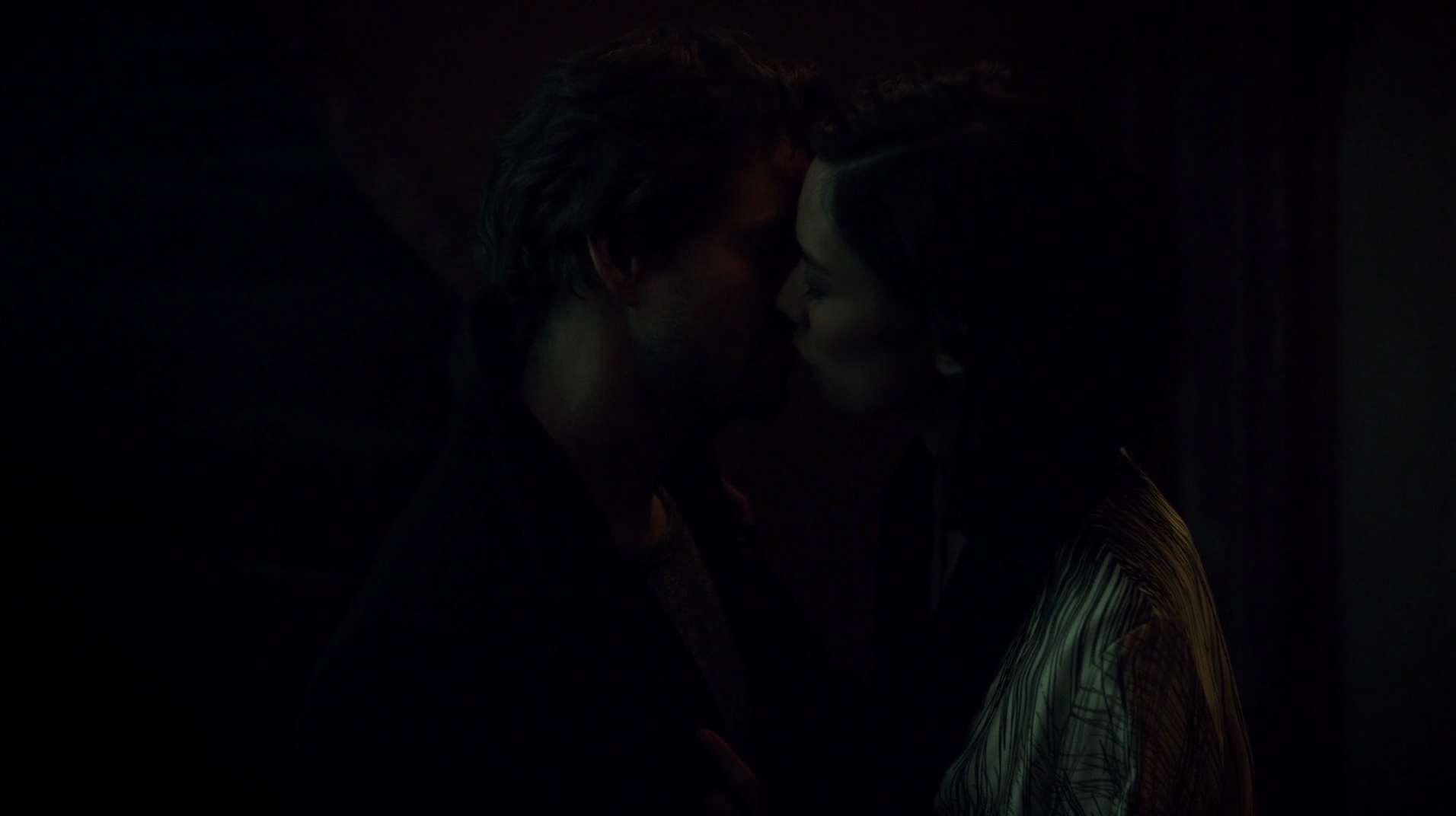
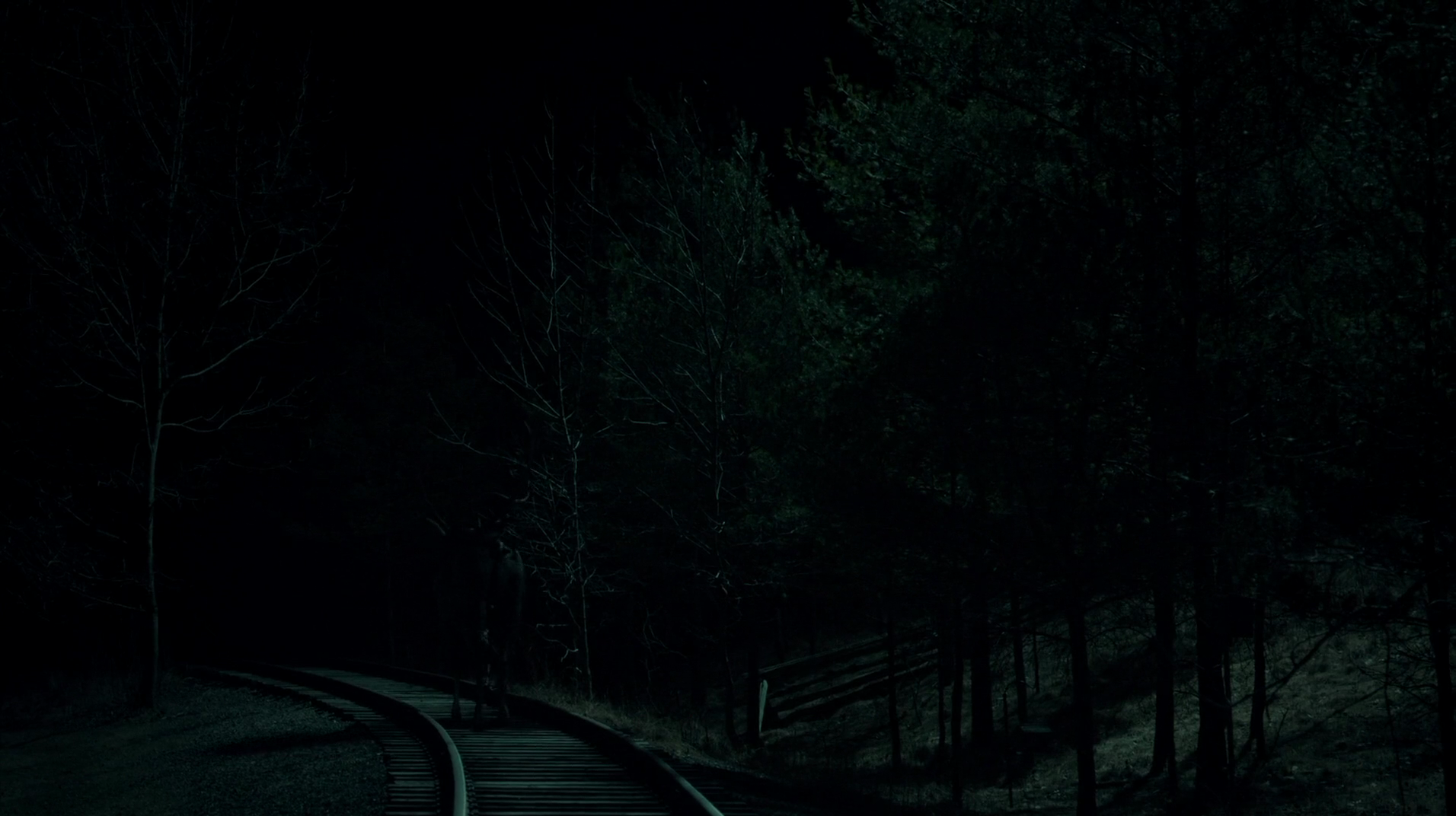
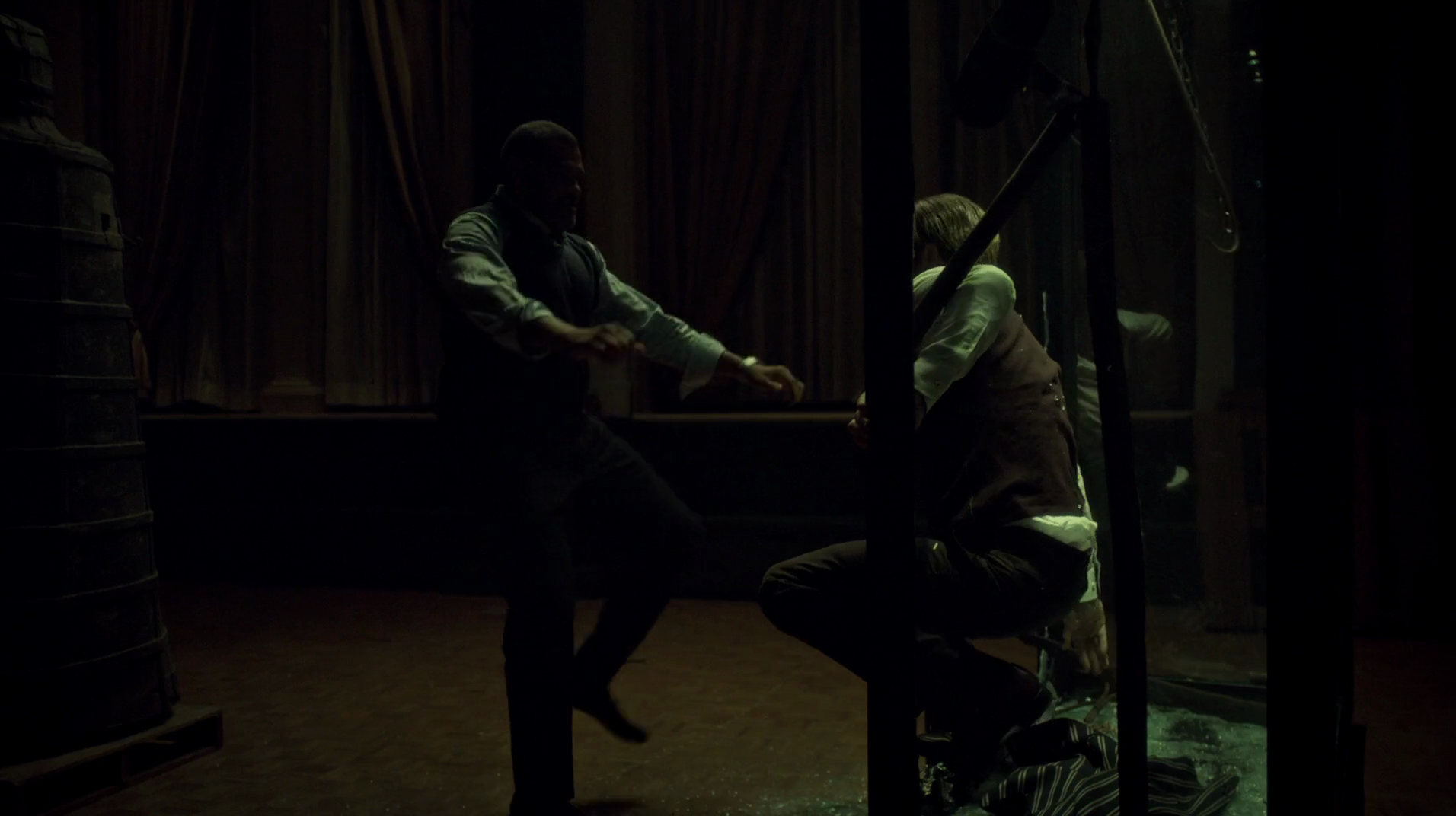
January 2, 2018 @ 10:20 am
“The general question is outside the scope of this annotation, but recall that Hannibal’s aesthetic is Will Graham”.
Will Graham who has the same urges as Hannibal, but manifests them in a different way, because he has a different set of principles built around them. An interesting interplay between sameness and difference.
“In other words, he prefers the weird to the hauntological, in marked contrast to what he actually is”.
In other words, we are, at least partly, not unlike Socrates’s Eros: we crave what we are not.
January 2, 2018 @ 2:42 pm
Just wondering, since the EP search function is so badly non-functional, if there are any plans for a page gathering Phil’s miscellaneous posts. “The Proverbs of Hell”, the “Brief Treatise”, the “Trilogy Trilogy”, “Build High for Happiness”, “Doctor Who in 201X”, the old “Patreon Request” articles, the Rian Johnson one, the Sol review/commentary (and before it Worldburners), I’m sure there are many others – having them all gathered together in one place would be very nice.
January 2, 2018 @ 2:42 pm
… the DW reviews, the GoT season five and six reviews, etc.
January 2, 2018 @ 2:50 pm
I didn’t dare to articulate that before, but that would be truly great.
(I suppose tagging the posts consistently would do the job as well).
January 2, 2018 @ 3:14 pm
(I suppose tagging the posts consistently would do the job as well)
[Looks at the Last War in Albion entries]
January 2, 2018 @ 8:20 pm
Dear god yes this please.
That said, you may find that googling for “proverbs of hell site:www.eruditoriumpress.org” is helpful.
January 5, 2018 @ 12:08 am
Snogging Will was a hands-on demonstration of what she meant by “alternate means of influence” on Hannibal, since Will was too dense to understand words. Pushing him off the train was her giving up because he was too dense to understand the hands-on demo.
IMO the scene mainly exists so that first time watchers can start expecting a mirroring scene where Will (nearly) snogs Hannibal then pushes him off something.
August 12, 2020 @ 9:47 am
“The first step in the development of taste” comes from the book Hannibal, referring to Starling.